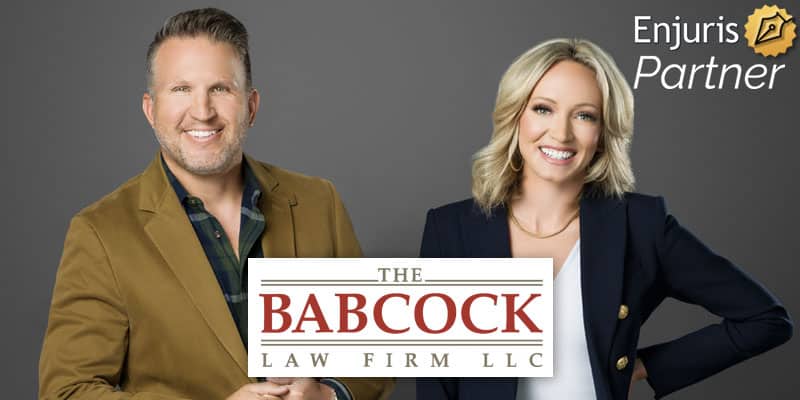What laws cover aviation crashes? How do you hire a lawyer after an airplane accident?
When people think of Colorado, they generally think of the great skiing that the state has to offer. However, you have to get to Colorado to enjoy the skiing, and many people have to travel by plane to do that.
What happens if there is a plane accident? Thousands upon thousands of people fly each year across the United States without anything happening to them. Usually car accidents are the culprit when it comes to serious incidents. To be sure, there are far more car accidents than there are plane crashes. But when there is a plane crash, it is far less likely that you’ll walk away from it.
According to the U.S. Department of Transportation, there were 895.3 million plane passengers who flew on domestic airlines in 2015. From 1945 to 2013, 10,505 people lost their lives in airplane accidents. In 2016, 258 people died in airliner accidents, compared to 546 people who died in Colorado car crashes in 2015 alone.
Colorado plane crashes are unique and can happen for any number of reasons: the rocky terrain, the geography of the mountains, airport elevations, thin air, high winds and summer heat.
What might cause an aviation accident?
Figuring out exactly what caused a plane, jet or helicopter to crash is challenging and can take investigators quite a while to determine – sometimes years, in fact. This must happen before negligence can be determined.
Federal Aviation Administration (FAA) investigators occasionally must coordinate with foreign officials to extract the “black box,” a recording unit with a crash-survivable solid-state memory unit. (These used to have magnetic tape but have since been upgraded so that they can survive in even the toughest conditions, preserving the moments right before a crash so we can make sure what happened doesn’t happen again.)
Crashes (or, as FAA investigators call them, “incidents”) can happen for any number of reasons:
- Defective equipment or technical error: Was the navigational equipment working properly? A products liability suit could potentially be initiated against the manufacturer.
- FAA regulation violation: This could include using the wrong runway, an altitude deviation, airspace violation, or inadequate fuel reserves, for instance. For instance, there might be two planes on the same runway. That would not be a good situation.
- Piloting error: Was the pilot unconscious? Sick? Beaten by a hijacker? Somehow negligent? Grandstanding? Sleeping at the wheel? Mishandling the controls? Using his iPhone?
- Fueling or intake problem: If there wasn’t enough fuel to get the plane to its ultimate destination, this would likely be a case for gross negligence.
- Air traffic control error: Sometimes the error is on Earth and fault lies with the people on the control tower or the landing strip.
- Faulty maintenance or structural issue: Was the plane in shape to fly? Was everything checked prior to taking off?
- Other negligence: This could include flight crew negligence (failing to do safety checks, for instance, or dragging a passenger off a plane to make room for staff, as happened with United Airlines) or corporate negligence.
What sort of client needs an aviation attorney?
An aviation lawyer can expect more than a pilot asking for his services. He might represent a range of clients when it comes to airport or aircraft litigation:
- Fixed base operators
- Aircraft owners
- Aviation employment companies
- Staff leasing companies
- Pilots
- Airports
- Aviation maintenance companies
- Manufacturers
- Skydiving operators
- Oil companies
- Domestic/international charter operators
- Aviation insurance companies
- Mechanics
- Anyone else involved with aircrafts or aircraft facilities
Who else can possibly be held liable?
- Manufacturer: When a product is found to be defective, the manufacturer can be held liable for any injuries that the defect caused. This theory is known as “strict liability.” If a manufacturer puts a product into the stream of commerce, it’s responsible for that product, no matter where it ends up.
- Owner/operator: If the owner of an aircraft is proven to have been reckless while operating an aircraft, then he or she will likely be held liable for damages to injured parties. The pilot can also be held responsible under the theory of vicarious liability, or respondeat superior, which is when the employer is responsible for the actions of the employee during the course of employment.
- Common carrier: Commercial airlines are held to high standards because they present themselves to the public as “common carriers.” They carry any passenger who purchases a ticket from them. The FAA is in charge of rules and regulations regarding common carriers, which are more stringent than those around private carriers (IE, personal planes).
What other legal claims can be presented?
These are some, but not all, of the claims that could be raised:
- Respondeat superior/vicarious liability: This means “Let the master answer.” The employer is responsible for the employee’s actions during the scope of his or her employment.
- Negligence: the defendant owed a duty of care to the plaintiff (also known as the victim); the defendant breached that duty of care; the plaintiff was injured; and the defendant’s breach caused damages.
- Strict liability: In products liability cases, this is when a defendant puts a product into the stream of commerce and holds responsibility for whatever damages that product causes.
- Federal Tort Claims Act: This act allows private citizens to sue the federal government and its employees for torts committed in the scope of federal employment.
- Colorado Government Immunity Act: In 1979, Colorado enacted the Government Immunity Act, which allowed it to be liable for certain acts, but limited its liability to certain dollar amounts by placing caps on damages. In 2013, Governor Hickenlooper signed SB 13-023, which increased the caps to $350,000 for single claims for $999,000 for multiple claims. This proved to be very controversial within the state, and not everyone was happy about it. However, it does allow victims the possibility of recovering more money against the government.
What defenses can the airlines claim?
The airline can respond with typical product liability or personal injury defenses.
However, operators of smaller aircrafts (meaning those owned by private citizens) can try an additional defense: The General Aviation Revitalization Act of 1994 bars lawsuits against the manufacturers of small private airplanes if the accident involved an aircraft or part that has been in use for 18 years or more.
However, when we say “small” aircraft, that means fewer than 20 seats, so this is a narrow defense.
What about the families of victims?
There used to be a surge of attorneys toward the scene of airplane crashes. Whenever there was an “incident,” attorneys would call the victim’s family to offer assistance. Limits on attorney solicitation have been imposed by creating the Aviation Disaster Family Assistance Act of 1996. This suppressed the surge of business cards, phone calls and lawyers actually popping up at funerals in the early ‘90s.
The Act also did other helpful things for the families of aviation incident victims. It made the federal government support the families by requiring the airlines and the National Transportation Safety Board to provide the following services:
- Victim identification and forensic identification;
- Translation;
- Daily briefings;
- Safe grieving places that would be uninterrupted by the press or lawyers;
- Memorial services;
- Communications with foreign governments;
- Mental health and counseling; and
- Meetings with the families of victims.
The airline was also responsible for establishing a toll-free telephone line for the families, providing a list of all passengers on the flight, informing families of the death of family members, and assisting the families with travel to the location of the accident.
Finding an aviation attorney in Colorado
Searching for the right lawyer to help with recovery of damages after an accident involving an aircraft is important. Here are some of our best resources to help in your search:
- How to hire the right Colorado personal injury lawyer
- Time limits/statutes of limitation in Colorado for personal injury lawsuits
- An overview of the injury claim process in Colorado
- How much is my injury worth? Calculating injury settlement value in Colorado
Finding an attorney who is knowledgeable in aviation law can be a challenge. If you are in need of one, consider speaking with a Colorado attorney in the Enjuris law firm directory – they will be able to help.
See our guide Choosing a personal injury attorney.


